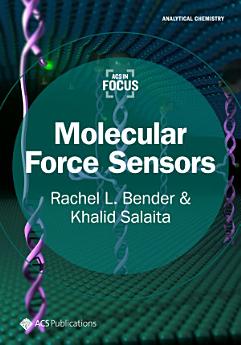Molecular Force Sensors
关于此电子书
The number of available questions in the field of mechanobiology is endless. After reading this e-book, you will be equipped with the information needed to begin designing your own molecular force sensors, and to begin answering the multitude of questions surrounding cell mechanobiology.
作者简介
Rachel Bender earned her B.A. in chemistry and biochemistry from Capital University in Columbus, Ohio in 2017 before beginning her graduate studies in the Department of Chemistry at Emory University. She is currently developing new sensors for measuring molecular forces in cells and studying the relationship between force sensing and a cell’s biological response. She has also been recognized with a NSF Graduate Research Fellowship Program Honorable Mention. She is passionate about bridging the gap between scientists and the general population and has worked with the Atlanta Science Festival and the Atlanta Discovery Program to share scientific research and concepts with both children and adults. Outside of research, she spends her time playing the cello and is an avid chamber musician as well as a member of the Atlanta Community Symphony Orchestra and the Gwinnett Symphony and Northeast Atlanta Ballet Orchestras.
Khalid Salaita is a Professor of Chemistry at Emory University in Atlanta, Georgia (USA). Khalid grew up in Jordan and moved to the US in 1997 to pursue his undergraduate studies at Old Dominion University in Norfolk, Virginia (USA). He worked under the mentorship of Prof. Nancy Xu studying the spectroscopic properties of plasmonic nanoparticles. He then obtained his Ph.D. with Prof. Chad Mirkin at Northwestern University (Evanston, Illinois, USA) in 2006. During that time, he studied the electrochemical properties of organic adsorbates patterned onto gold films and developed massively parallel scanning probe lithography approaches. From 2006-2009, Khalid was a postdoctoral scholar with Prof. Jay T. Groves at the University of California at Berkeley (USA) where he investigated the role of receptor clustering in modulating cell signaling. In 2009, Khalid started his own lab at Emory University, where he investigates the interface between living systems and engineered nanoscale materials. To achieve this goal, his group has pioneered the development of molecular force sensors, DNA mechanotechnology, smart therapeutics, and nanoscale mechanical actuators to manipulate living cells. In recognition of his independent work, Khalid has received a number of awards, most notably: the Alfred P. Sloan Research Fellowship, the Camille-Dreyfus Teacher Scholar award, the National Science Foundation Early CAREER award, and the Kavli Fellowship. Khalid is currently a member of the Enabling Bioanalytical and Imaging Technologies (EBIT) study Section and an Associate Editor of Smart Materials. Khalid’s program has been supported by NSF, NIH, and DARPA.







